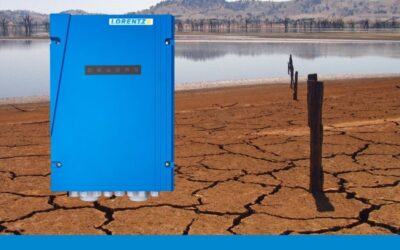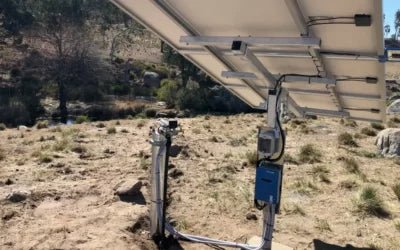For the last 3 years, Australia has experienced the effects of La Niña, which brought intense rainfall to many parts of the country.
An El Niño cycle means hotter, drier conditions which will have different, but equally challenging effects as La Niña such as water scarcity.
How can El Nino impact Australian Agriculturalists?
There are several potential impacts that an El Niño weather condition can have on Australian Agriculture. This includes:
Drought and Water Scarcity
El Niño is associated with decreased rainfall which leads to drought conditions. This can result in water scarcity for irrigation, livestock, and domestic use. Water reservoirs, rivers, and groundwater levels may decline, affecting the availability of water resources for agricultural activities.
Crop Yield Reduction
Insufficient rainfall and water scarcity during El Niño events can lead to lower crop yields and even crop failure.
Bushfires
The combination of reduced rainfall and higher temperatures during El Niño can elevate the risk of bushfires which can devastate farmland.
Heat Stress on Livestock
Hotter temperatures during El Niño can lead to heat stress in livestock. This can result in reduced productivity, lower milk production in dairy cattle.
Pest and Disease Outbreaks
Warmer temperatures and reduced humidity can contribute to increased pest populations, damaging crops and further impacting agricultural operations.
Financial Strain
Decreased crop yields and livestock productivity, combined with increased production costs due to higher feed prices, can lead to financial challenges for agricultural businesses.
While not a complete solution, a pivotal tool in alleviating the burden of water scarcity for agriculturalists is solar pumps. We discuss more about how solar pumps can help and what benefits they provide over water pumping systems that use other power sources.
The Benefits of Solar Pumps in El Niño
El Niño generally means more sun which means solar pumps thrive and can generate even more water.
In addition, solar pumps offer other distinct advantages over water pumping systems that rely on other power sources, including diesel, electricity, and wind, especially during El Niño and similar challenging conditions. These include:
Reliability and Independence
Solar pumps are highly reliable during El Niño events because they don’t rely on fuel availability or grid stability. Wind-based systems can be intermittent, but solar pumps consistently operate as long as there is sunlight, ensuring a continuous water supply. For systems that require water pumping around the clock, there are solar hybrid pumps which blend diesel and solar together to get the best of both worlds.
Solar energy is free and abundant, making solar pumps cost-effective over time. Diesel pumps require ongoing fuel purchases, which can be expensive and subject to price fluctuations during crises. Electric pumps might be affected by power outages during extreme weather events.
Environmental Friendliness
Solar pumps produce clean energy with no emissions, contributing to environmental sustainability. Diesel pumps emit pollutants and contribute to air quality issues. Electric pumps also generally come from coal power plants across Australia.
Minimal Maintenance
Solar pumps have fewer moving parts and require less maintenance compared to diesel pumps, which have engines and complex mechanical components. Electric pumps might need repairs and maintenance in case of grid disruptions.
No Noise and Aesthetic Impact
Diesel pumps and some wind-based systems can produce noise pollution, while solar pumps operate silently. Additionally, solar installations have minimal aesthetic impact.
Resilience to Climate Variability
As El Niño events might become more frequent due to climate change, solar pumps provide a resilient solution that aligns with shifting weather patterns.
While solar pumps have several advantages, the choice of water pumping system should consider factors such as location, water demand, available resources, initial investment capability, and specific challenges posed by El Niño conditions.
LORENTZ and our trusted dealer network across Australia helps farmers access reliable, cost-effective emissions-free power solutions to prepare for extreme peaks and troughs in weather conditions. To find out more, reach out to one of our trusted dealers in your area.








